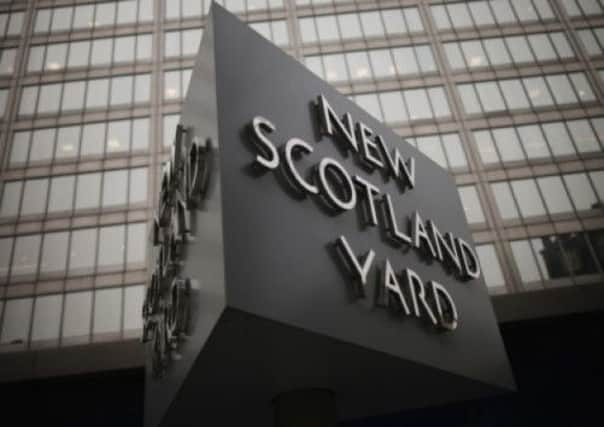London ‘slave’ case: Sister tells of reunion


Kamar Mahtum told the BBC’s Today programme her sister, 69-year-old Aishah Wahab, disowned her family in Malaysia in 1968 and “disappeared” in Britain’s capital.
She said her relative, who was one of three allegedly held for at least 30 years in Peckford Place, Brixton, south London, told her there were people who “need” her and “there was work to do still”.
Advertisement
Hide AdAdvertisement
Hide AdScotland Yard have said the three alleged victims - a 30-year-old British woman, a 57-year-old Irish woman and Ms Wahab - were part of a “collective” with a shared political ideology.
Ms Mahtum said she was “emotional” during the reunion, but her sister “wasn’t that much”.
“She was rather composed,” she told the Radio 4 programme.
“She is strong, much stronger than me. She never encroached into her mysterious life.”
Ms Mahtum said she believed her sister did not reveal many details of her alleged enslavement because police were listening to their conversation.
“She never told me where she lived or how she survived,” she said.
“I asked her, and she said she was fine, and I asked her how she got by. She said she had got friends, many friends, who need her, who help her, or who care for her.
“Friends, I don’t know who they are and I don’t know how to ask. She won’t say another word about them.”
Ms Mahtum said she spent around 90 minutes with Ms Wahab, and knew immediately she was her sister because she addressed her by a nickname.
‘Surprised’
Advertisement
Hide AdAdvertisement
Hide AdShe told the programme she was surprised by her good health and agility.
“She looks like my sister, she talks like my sister,” she said.
“I was so overcome by her physical ability, because ... I thought she wasn’t well and she was poor, some I heard say that she was for a while wheelchair-bound.
“But she looked okay, and she ran to me, we ran to each other, and she was very agile.”
Ms Mahtum said they talked about how Ms Wahab’s family in Malaysia missed her and about her Muslim faith.
She said she asked why Ms Wahab did not come home for so many years.
“She said, ‘There are people here who need me more than my family’, and then I was quite hurt by that and I couldn’t do anything.
“And then she said, ‘Everybody takes care of me here, and if I go to Malaysia I have nothing to do. Here I have lots to do, the people here need me’.
Advertisement
Hide AdAdvertisement
Hide Ad“And she kept on saying, ‘I have work to do still. I will get home as soon as I finish my work’.
“I didn’t ask her what the work is. There were things she was not eager to tell me.”
Asked about her sister’s sudden disappearance in the 1960s, she said: “I know she just disowned her family.
“We couldn’t find her. We tried. My brother stayed in the UK quite a few years and they tried to get her. She just disappeared.
“She didn’t want to see any of us.”
Ms Mahtum said her sister had promised to return to Malaysia eventually.
A man and woman, both 67, of Indian and Tanzanian origin were arrested two weeks ago as part of the investigation.
SEE ALSO: